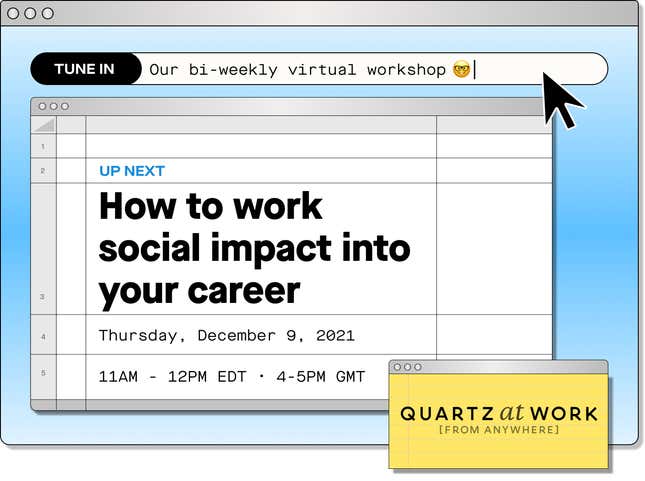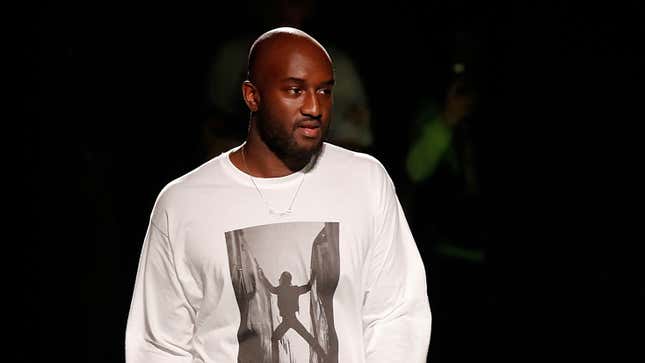Announcing his departure as Twitter’s CEO this week, Jack Dorsey wrote in a staff email that he wanted to leave the company to ensure it “can break away from its founding and founders.” Now the company’s new chief, Parag Agrawal, will have the difficult task of proving to employees that he has the vision to take Twitter into its next stage.
Compared with Dorsey, whose affinity for everything from bitcoin to intermittent fasting and free speech has been well-publicized, Agrawal is a relative unknown. He rose up through the ranks at Twitter after joining in 2011 as a software engineer and has served as the company’s chief technology officer since 2017, all which means that he should have solid insider credibility.
Yet taking the reins from a founder comes with its own set of complications. Dorsey had a famously hands-off approach to management, but he still occupied an important symbolic role at Twitter as the company’s co-founder. When activist investor Elliott Management attempted to oust Dorsey in the early months of 2020, claiming that the CEO’s attention was divided between the two companies, a good number of employees expressed their support for the leader, sharing the hashtag #WeBackJack. News of Dorsey’s departure reportedly sent shockwaves through Twitter’s staff, and a poll on the anonymous app Blind found that three-quarters of roughly 150 Twitter employees had their doubts about Agrawal.
On the other hand, if Agrawal can gain the confidence of Twitter employees, he may act as a stabilizing force at a company that’s been through its share of leadership tumult. Dorsey had been fired from the company in 2008, “in part for leaving work early to go to yoga classes,” per the Wall Street Journal, before returning in 2015.
It’s common enough for companies to experience turbulence as they transition from founder leaders to new CEOs. But as Dorsey himself suggested in his staff email, a company that can’t figure out how to survive without its founder is one that was too fragile in the first place. — Sarah Todd
Click here to reading about the challenges ahead for Agrawal.
Readers: How do you think Twitter will fare under Agrawal? What advice would you give him? Tell us at [email protected].
Five things we learned this week
🗓️ “Optimal busyness” is the ideal state for ambitious professionals. Workers who find the sweet spot between a bit too much work, but not overwhelming amounts of work, experience a “buzzing, energizing feeling.”
🏛️ Classical Greek enthusiasts are miffed that we’re mispronouncing the newest covid-19 variant. It’s oh-MY-cron, not OH-mi-cron, one viewer told the BBC.
🍽️ US restaurants are nervous about omicron. Thankfully, reservations haven’t declined just yet.
🙅♀️ Toxic masculinity runs rampant in the African parliament. A new study reveals that much of the physical and psychological violence female politicians encounter comes from their male colleagues.
🍁 Quebec has a strategic stockpile of maple syrup. Canadian producers are releasing 50 million pounds—about half their “liquid gold” reserves—to bridge the global syrup shortage.
Join us: Careers in social impact

Have you ever wondered about a career in social impact, and how to get there? Perhaps you’re just starting your career and looking to maximize your potential. Or maybe you’re mid to senior level and looking to pivot into work that allows you to spur social change. In this workshop, our expert panel will give you ideas about exactly how to do that.
Date: Thursday, Dec. 9, 2021, 11am ET / 4pm GMT
Speakers:
- Maria Correa, head of marketing and communications, B Lab Europe
- Rick Benfield, director Re_Set
- Erica Crump, partner, Bates Wells
- Jihan Abass, founder and CEO, Lami Insurance Technology
- Daianna Karaian, founder, Today Do This
Facilitated by Cassie Werber, senior reporter, Quartz
The workshop is free and open to all, and Quartz members can watch the replay and read a recap of the event here.
Not a member yet? Sign up now for a 7-day free membership trial and be part of Quartz’s thriving community of sharp, thoughtful readers.
Remembering Virgil Abloh
RIP to the master of collaborations. In the short span of 41 years, Virgil Abloh managed to pack in high-profile projects worth several lifetimes. In addition to running his own fashion label and leading Louis Vuitton’s menswear atelier, the American-Ghanaian designer who died on Nov. 28, remained relentlessly in the spotlight through collaborations with brands like IKEA, Nike, Levi’s, Vitra, and Mercedes Benz. As a DJ, he had an acuity for mash-ups and often remixed traditional beats with cutting edge; east and west; white with black; pop culture and fine art.

Why did Abloh love collaborating? He said it wasn’t ego or restless energy that drove him to constantly seek new creative partners. Collaborations, he explained, were a kind of unification strategy that would bring audiences of different inclinations together. “Collaboration invites the new generation into the conversation,” he said. “My work is meant to open doors for them.”
Click here for a list of brands and personalities Abloh collaborated with during his career.
Office tunes
In memory of Virgil Abloh, we’re listening to “ORVNGE,” the late designer’s foray into “discovered techno and tribal depths” produced in collaboration (of course) with German DJ Boys Noize.
You got The Memo!
This week’s edition of The Memo was written by Sarah Todd and Anne Quito. It was edited by Francesca Donner.
Did someone forward you this newsletter? You can sign up for future installments here. You can write to the Quartz at Work team here. Or, get the most out of Quartz by downloading our app and becoming a member.
